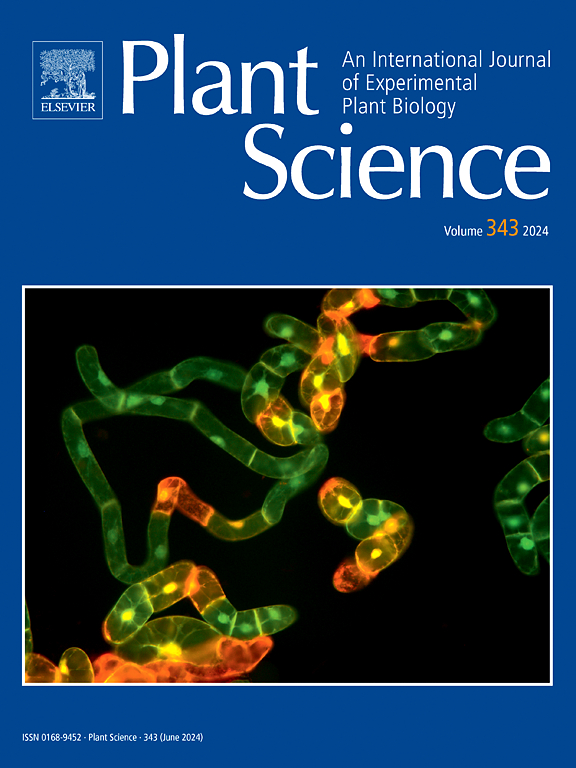γ-aminobutyric acid (GABA) supplementation modulates phosphorus retention, production of carbon metabolites and defense metabolism under arsenic toxicity in wheat
IF 4.2
2区 生物学
Q2 BIOCHEMISTRY & MOLECULAR BIOLOGY
引用次数: 0
Abstract
Arsenic (As) stress has been incessantly degrading crop productivity, and thereafter leading to the increasing grave conditions pertaining to the unsustainable food production. In plants, As stress has been considered as one of the serious phytotoxins persisting in the environment, endangering crop shelf life through competing with phosphorus availability. The withholding of As in the staple crop, wheat (Triticum aestivum), is the major concern. It has been advocated the significance of plant signaling molecules, γ-aminobutyric acid (GABA), in mediating plant health response to environmental stresses, but their impacts on As contamination in wheat plants from the perspective of growth and physiological tolerance still remain ambiguous at present. The present study investigated the significance of GABA supplementation in wheat plants on phosphorus and carbon metabolisms, adenosine triphosphatase (ATPase) activity, As accumulation, defense systems, and growth responses under As stress. In this study, GABA supplementation aided in the retention of phosphorus and carbon metabolites, sustained photosynthetic traits, and considerably modulated both chloroplastic and mitochondrial ATPase activity under As stress. Further, As-induced oxidative stress injuries were recovered through the activation of defense metabolites, and suppressed oxidative stress markers and As accumulation, which was found concomitant with the improved As tolerance index. Thus, this investigation offers insightful information that might be useful in future investigations to develop wheat tolerance to withstand under As-contaminated environments.
求助全文
约1分钟内获得全文
求助全文
来源期刊

Plant Science
生物-生化与分子生物学
CiteScore
9.10
自引率
1.90%
发文量
322
审稿时长
33 days
期刊介绍:
Plant Science will publish in the minimum of time, research manuscripts as well as commissioned reviews and commentaries recommended by its referees in all areas of experimental plant biology with emphasis in the broad areas of genomics, proteomics, biochemistry (including enzymology), physiology, cell biology, development, genetics, functional plant breeding, systems biology and the interaction of plants with the environment.
Manuscripts for full consideration should be written concisely and essentially as a final report. The main criterion for publication is that the manuscript must contain original and significant insights that lead to a better understanding of fundamental plant biology. Papers centering on plant cell culture should be of interest to a wide audience and methods employed result in a substantial improvement over existing established techniques and approaches. Methods papers are welcome only when the technique(s) described is novel or provides a major advancement of established protocols.
 求助内容:
求助内容: 应助结果提醒方式:
应助结果提醒方式:


